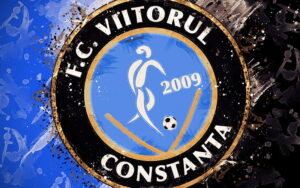Promoting Social Inclusion and Dominica FC

Dominica FC
Football has long been recognized as a tool for promoting social inclusion. Dominica FC actively advocates for gender equality, diversity, and community engagement. Its inclusive policies encourage participation from various ethnic groups and promote gender-balanced teams, reflecting evolving societal values.
Moreover, the club organizes charity events, community outreach, and health campaigns, strengthening its role as a vital social institution. These efforts not only enhance community well-being but also demonstrate how sports can serve as a positive force for societal change.
Tactical Evolution and Dominica FC
Like many historic clubs, Dominica FC has undergone tactical transformations influenced by global football trends, coaching philosophies, and player capabilities. Analyzing their playing style provides insights into how the team maintains competitiveness and adapts to modern demands ww88.com.
Traditional Playing Philosophy
Historically, Dominica FC relied on a robust, physically demanding style of play characterized by disciplined defense and swift counterattacks. This approach emphasized teamwork, resilience, and strategic positioning, allowing them to outmaneuver opponents in tight situations. The club’s emphasis on grassroots development contributed to a technically sound squad capable of executing set pieces effectively.
Their traditional formations favored a solid midfield anchored by versatile players capable of transitioning between attack and defense seamlessly. This philosophy fostered a cohesive unit that thrived on discipline and tactical intelligence.
The effectiveness of the traditional playing philosophy was not merely about physical prowess; it involved instilling a sense of unity among players. The players would often engage in intense training sessions, building camaraderie and trust on the field. As they learned to play together, this bond translated into better teamwork during matches, where each player understood their role in the overall strategy.
Furthermore, the tactical discipline embedded within the traditional system often proved advantageous against higher-ranked teams. Dominica FC could frustrate opponents with solid defensive organization while looking to exploit gaps on the counterattack. It taught players the importance of patience and strategic thinking, laying a foundation for future tactical evolutions.
Adapting to Modern Football Trends
In recent years, Dominica FC has incorporated modern tactical elements such as high pressing, possession-based football, and dynamic wing play. Under the guidance of progressive coaches, the team has focused on ball control, quick passing, and creative attacking movements.
The adaptation involved training players to think analytically, utilizing data analytics, video analysis, and fitness optimization. These changes have led to improved performance in regional tournaments and increased competitiveness against better-funded clubs.
One significant aspect of this transformation is the emphasis on high pressing, which requires players to exert pressure on opponents immediately after losing possession. This tactic not only disrupts the opposition’s rhythm but also creates opportunities to regain the ball quickly. Players are now trained to read the game more dynamically, enhancing their ability to react and adapt to different match situations.
Moreover, the shift towards a possession-based game reflects a broader trend in modern football, where maintaining ball control is essential for dictating the pace of the match. This requires not just technical skills but also a deep understanding of spatial awareness, allowing players to make intelligent passes and create scoring opportunities. Training sessions are increasingly focused on developing players’ tactical intelligence, ensuring they can execute intricate plays under pressure.
Player Development and Roles
The transition towards a more possession-oriented style has necessitated versatile players adept at multiple roles. Midfielders now possess greater passing range and vision, while forwards focus on movement off the ball and finishing skills. The club places great emphasis on developing multi-dimensional players who can adapt tactics based on the match situation.
This evolution reflects the broader trend in Caribbean football, where clubs balance traditional strengths with global tactical innovations to remain relevant and successful.
For example, today’s midfielders are expected to be more than just ball-winners; they also need to contribute offensively through goal-scoring and assisting. This shift demands that players develop a more comprehensive skill set, including enhanced passing accuracy, dribbling abilities, and positional flexibility.
Additionally, defensively-minded players are encouraged to participate in build-up play, blurring the lines between attack and defense. The ability to transition fluidly between these phases is crucial in modern football, and Dominica FC has recognized this as a vital part of its training and recruitment processes.




